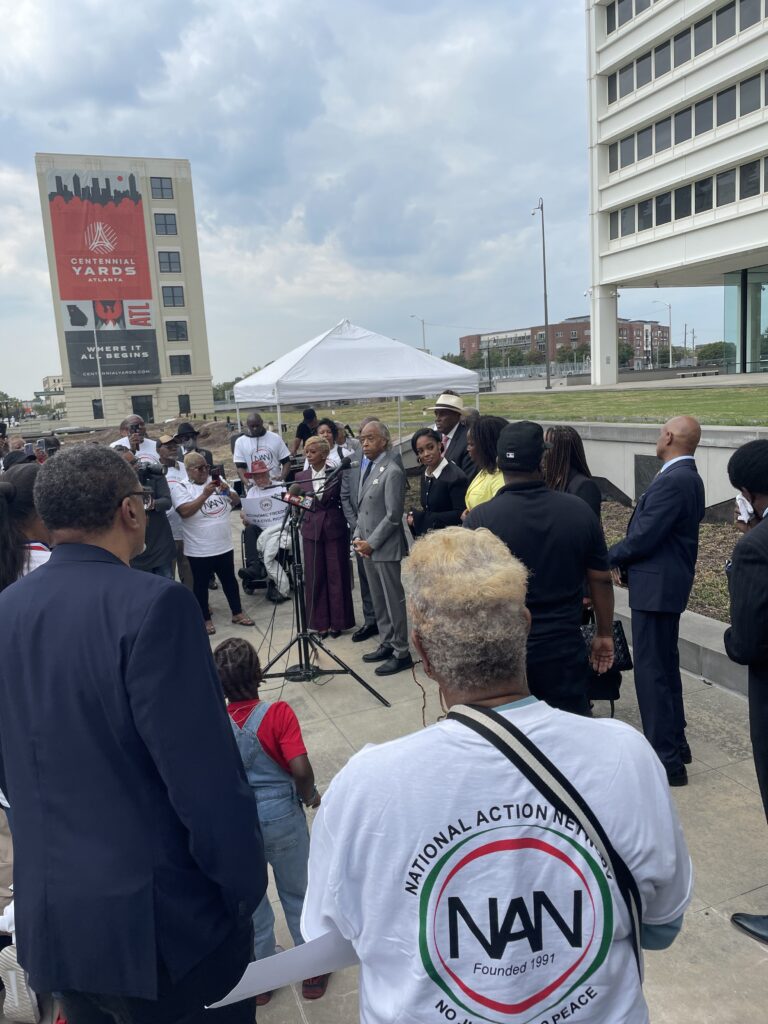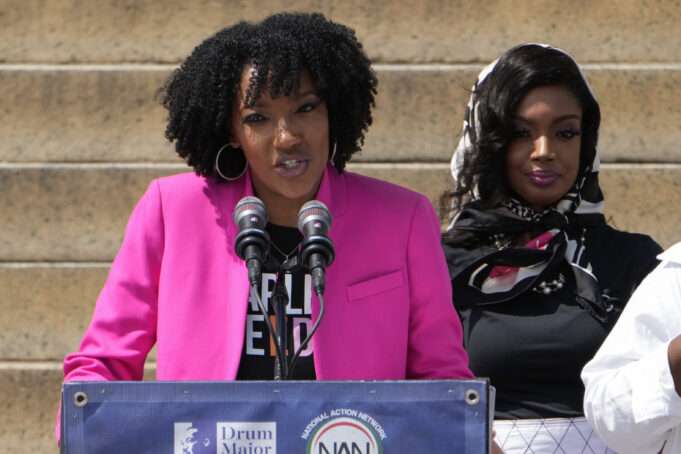ATLANTA—It has been over two months since Edward Blum, and his nonprofit, American Alliance for Equal Rights, first filed the lawsuit against Fearless Fund, an Atlanta-based venture capital fund that supports Black women. Mr. Blum is White.
Mr. Blum, who was instrumental in the U.S. Supreme Court’s decision to ban affirmative action in collegiate admissions, is accusing Fearless Fund of racial discrimination. He is targeting the fund’s “Fearless Strivers Grant Contest,” which awards $20,000 in grants to—Black women-owned businesses. Mr. Blum claims the program has excluded some of the members of the American Alliance for Equal Rights due to their race.
Though the founders of Fearless Fund, Arian Simone and Ayana Parsons, have had a legal setback via a recent court ruling, they continue fighting. Their defense argues that the grant program falls under First Amendment protections of speech and expressive conduct and that Black women receiving grants do not irreparably harm a member of another race.
On September 26, U.S. District Judge Thomas W. Thrash ruled in favor of the two women, during their first court hearing. He denied a preliminary injunction to block the grants, stating that the plaintiffs simply disagree with the message of Fearless Fund, and “that’s not the way it works.”
“The defendants, in my opinion, have a message that they’re trying to communicate, that Black women in business” lack access to capital, he said.
The lawsuit is being brought under Section 1981 of the Civil Rights Act of 1866, which states that “[a]ll persons within the jurisdiction of the United States shall have the same right in every State and Territory to make and enforce contracts … as is enjoyed by White citizens.”
According to a 1976 court case cited in Judge Thrash’s ruling, “The principal object of the legislation was to eradicate the Black Codes, laws enacted by Southern legislatures imposing a range of civil disabilities on freedmen.”

The judge says in his order and opinion that “… the (Fearless) Foundation clearly intends to convey a particular message in promoting and operating its grant program: ‘Black women-owned businesses are vital to our economy.’ … And it carries out its commitment to that group by supporting ‘entrepreneurs who might otherwise lack the access to capital necessary to bring their businesses to life.”
Freedom Fund supporters, including Rev. Al Sharpton and the National Action Network, one of the fund’s grant recipients and Rev. Jamal Bryant of the Atlanta-based New Birth Missionary Baptist Church, gathered outside of the courthouse after the September 26 hearing.
“What these two women have stood and done is something that is representative of the will and desire of all of us. We are not trying to discriminate; we’re trying to correct historic discrimination,” Rev. Sharpton said.
Many of the supporters traveled via a bus provided by the National Action Network. Others traveled about 150 miles to be present, on a bus from Birmingham, Alabama. Gilda Walker was one of those.
“I’m here today because of the injustices that have taken place,” she said. “To even think about accusing them of being discriminatory is an insult of its own.”
Arian Simone announced during the gathering that the Freedom Fund has deployed over $26 million and over 350 grants to women of color.
Annually, Black entrepreneurs receive less than two percent of venture capital funding, and Black women-led companies receive less than one percent, according to data from Crunchbase. By the end of 2022, Black entrepreneurs and businesses saw a 45 percent decrease in financing.
According to a 2022 report by the nonprofit advocacy group, digitalundivided, on Latina and Black women entrepreneurs in the tech and innovation ecosystem, in 2022, five percent of all venture capital funding went to women, and only 0.85 percent went to Black women and Latina entrepreneurs, by the end of quarter three.
These are the statistics Fearless Fund is attempting to change.
The message of Fearless Fund did not matter to a three-judge panel with the Atlanta-based 11th U.S. Circuit Court of Appeals. On September 30, Judge Thrash’s decision was reversed via a 2-1 ruling to temporarily prevent Fearless Fund from running its grant contest. The panel wrote that the program was “racially exclusionary” and “substantially likely” to violate a federal law prohibiting racial discrimination in contracting, according to The Washington Post. The two judges who ruled against Fearless Fund were appointed by former President Donald Trump.
In his dissent, Judge Charles R. Wilson criticized the use of the Civil Rights Act of 1866, a law meant to protect the newly emancipated Black slaves.
“It is a perversion of Congressional intent to use [the law] against a remedial program whose purpose is to ‘bridge the gap in venture capital funding for women of color founders’—a gap that is the result of centuries of intentional racial discrimination,” he wrote.
Over 70 venture capital firms are standing in solidarity with Fearless Fund. Organizers launched a change.org petition, which now has over 2,000 signatures. The Fearless Foundation also launched a website for people looking to support. Another petition has amassed over 7,500 signatures, and the foundation has received almost $50,000 in donations.
Fearless Fund’s fight is not over. A separate 11th Circuit panel will be granting an official ruling on whether Fearless Fund will be blocked from awarding money through its grant contest, as the case is litigated in district court. The date when the decision will be made is not known.
Ayana Parsons’ parents, Jeorge and Annette Gary are 100 percent in their daughter’s corner.
“I have said continuously, when your heart is right and your heart is connected to your brain and you’re right, you cannot lose. … In the long run, you can’t lose. That’s what I have told her,” Annette Gary said to The Final Call, after the first court hearing. “For all parents, get your ‘mini-mes’ right, because you don’t know what battle they are going to be called to fight, and you can’t fight it for them.”













